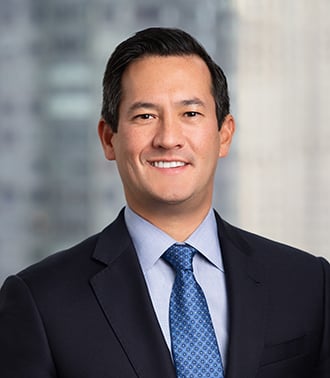“Not a Flash in the Pan” – Government Enforcers Say Sanctions and Export Control Enforcement Against Corporations Is Here to Stay
Hot on the heels of DAG Monaco’s speech this morning, this afternoon featured a timely panel on the government’s enforcement agenda for sanctions and export controls. The speakers included Matthew Axelrod, Assistant Secretary for Export Enforcement, Bureau of Industry and Security, US Department of Commerce; Matthew Olsen, Assistant Attorney General, National Security Division, US Department of Justice; Andrea Gacki, Director, Office of Foreign Assets Control, US Department of Treasury; and Steve Francis, Acting Executive Associate Director for Homeland Security Investigations, US Department of Homeland Security.
Assistant Secretary Axelrod set the stage by discussing the Director of National Intelligence’s global threat assessment. He noted that in 2006 when the Office of National Intelligence was launched, the top threat was from terrorism by non-state actors. But the top threat for the last year was from state actors like China, Russia, Iran, and North Korea that seek to overtake the United States militarily. He explained that one purpose of sanctions and export controls is to keep our most advanced technologies out of the hands of our most dangerous adversaries. As Assistant Secretary Axelrod put it, the goal is to maintain as large of a lead as possible relative to our adversaries when it comes to key technologies.
All four panelists agreed that enforcement against corporate actors is key to achieving this objective. The panel stressed the need for companies to invest in compliance and to recognize the risks of violating the sanctions and export control laws, the same way that they currently think about preventing FCPA violations. The panelists also noted that they would rather work with companies on front-end prevention rather than back-end enforcement because criminal prosecution is and should be a tool of last resort, but it cannot scale like improving compliance regimes can. That said, to give companies the incentive to invest in front-end prevention, the panelists said that it may be necessary to bring enforcement actions at the outset to clearly demonstrate the consequences of violating the law. So companies should expect to see an increase in corporate enforcement actions in the coming months and years as government enforcers look to make a few examples out of corporate wrongdoers.
The panel also discussed recent initiatives, such as Task Force Kleptocapture and the Disruptive Technology Strike Force. Assistant Attorney General Olsen noted that when you focus attention and resources on a problem with these initiatives – when high-level leadership “changes the demand signal” – you can make a big difference in corporate behavior. And DAG Monaco’s recent announcement is intended to highlight the intersection of national security and the enforcement against corporate actors and to increase the resources available to pursue such cases.
The bottom-line message is that enforcement of the sanctions and export control laws is here to stay, and companies should act accordingly. As Assistant Secretary Axelrod put it, this is not a flash in the pan. While sanctions and export controls may have come to public consciousness because of Russia’s invasion of Ukraine, they will continue to be a priority even after the war is concluded. So, if these areas are not at the top of a corporation’s compliance list, they should be headed there in short order.
For questions about sanctions and export control enforcement, please reach out to the authors or their colleagues in Arnold & Porter’s White Collar Defense & Investigations and Export Control & Sanctions groups.
© Arnold & Porter Kaye Scholer LLP 2023 All Rights Reserved. This blog post is intended to be a general summary of the law and does not constitute legal advice. You should consult with counsel to determine applicable legal requirements in a specific fact situation.


